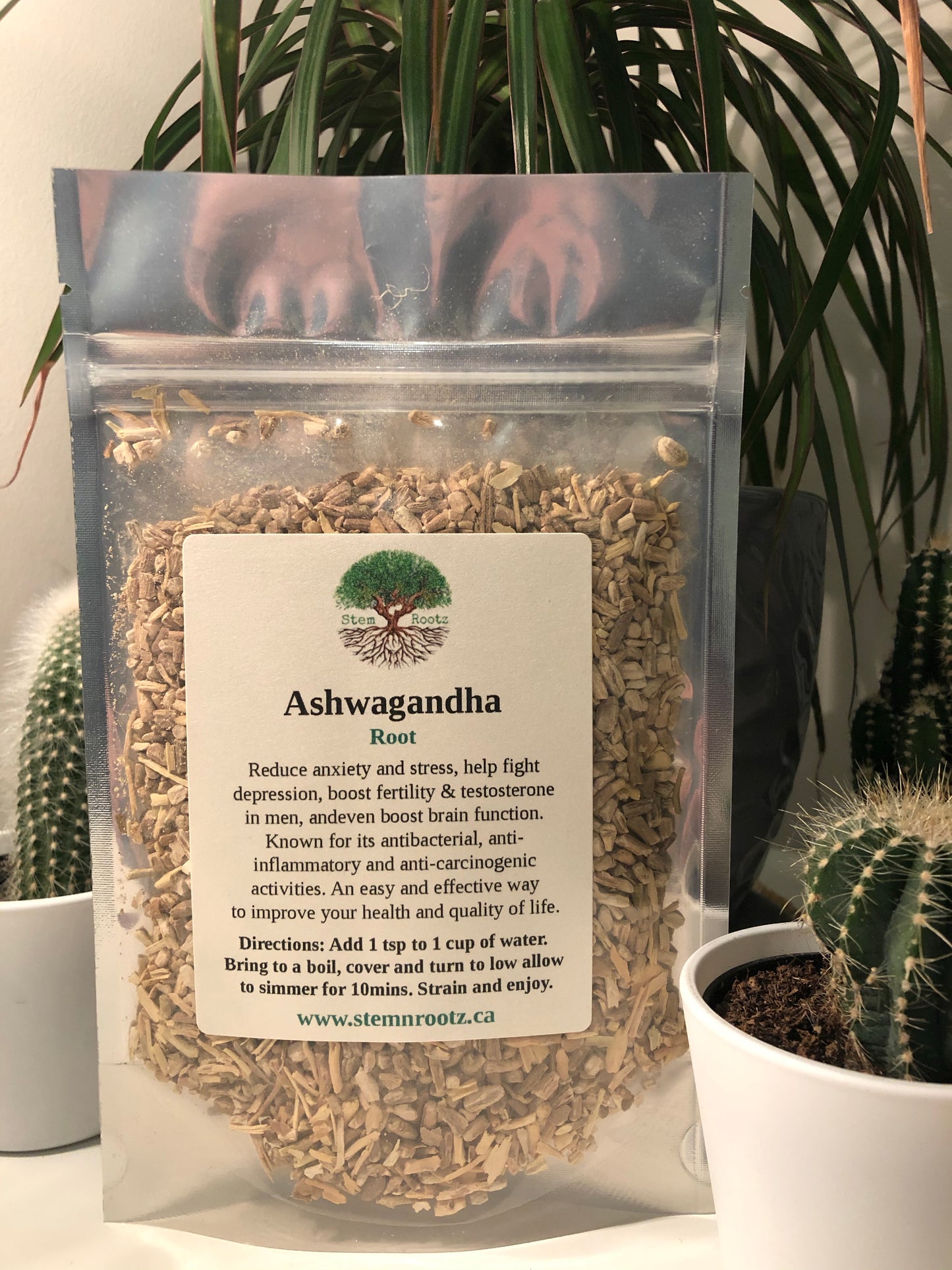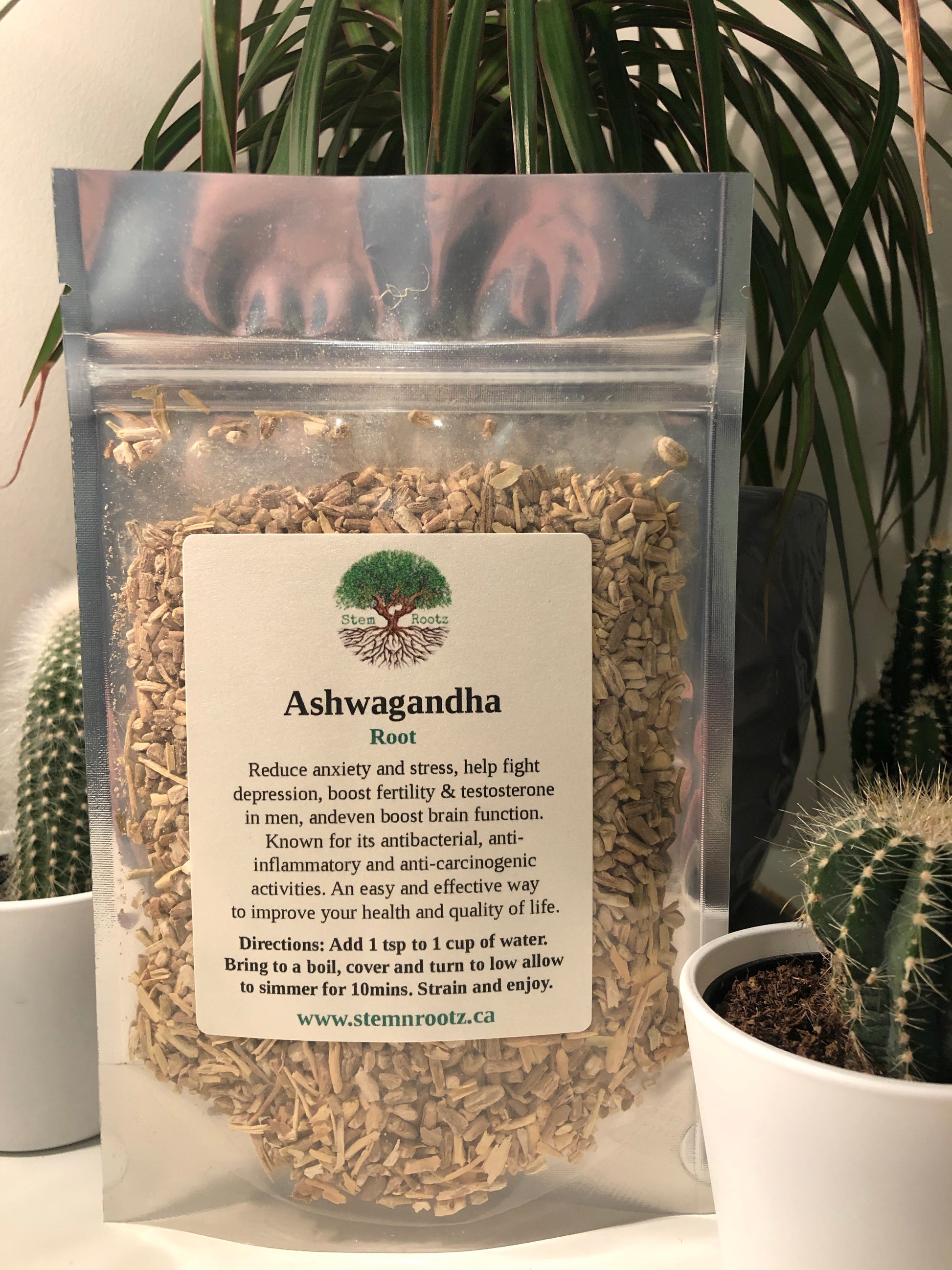Stem n Rootz
Ashwagandha – Adaptogenic Support for Stress Relief, Energy, and Vitality 3oz
Ashwagandha – Adaptogenic Support for Stress Relief, Energy, and Vitality 3oz
Couldn't load pickup availability
Ashwagandha is a revered adaptogen celebrated for its profound ability to balance, energize, and protect the body. Rich in natural compounds, it supports the adrenal system, promotes resilience to stress, and enhances overall vitality and well-being.
Key Benefits:
-
Reduces stress and anxiety by supporting adrenal health and normalizing cortisol levels
-
Enhances energy, stamina, and endurance for improved physical performance
-
Stabilizes blood sugar levels, promoting balance for conditions like depression and dementia
-
Protects against neurodegenerative diseases such as Alzheimer's and Parkinson’s with powerful antioxidants
-
Supports thyroid health indirectly through adrenal support
-
Boosts brain function and mental clarity
-
Promotes overall emotional, physical, and cognitive well-being
How to Use:
Steep 1–2 teaspoons of dried Ashwagandha in hot water for 10–15 minutes to create a soothing herbal tea. It can also be added to smoothies, tonics, or taken as part of a daily adaptogenic regimen.
Ingredients:
100% Pure Dried Ashwagandha Root.
Disclaimer:
Always consult with your healthcare provider before beginning any new herbal regimen, especially if you are pregnant, nursing, or taking medications.


